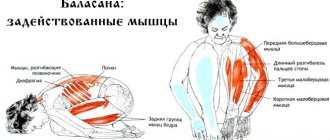Stretching during pregnancy
Benefits of stretching during pregnancy.
Stretching makes you more flexible, strengthens your muscles, and relieves pain in your back and throughout your body. Stretching also increases your body's range of endurance, which helps prepare you for labor. Plus, stretching is a healthy way to relax and relieve stress.
Exercising during pregnancy works wonders. Sport improves your mood, improves sleep and reduces pain in the lower back and throughout the body. It also prepares you for childbirth by strengthening your muscles and endurance. Research shows that exercise during pregnancy may also reduce the risk of gestational diabetes and preeclampsia. If you have been diagnosed with gestational diabetes, exercise can help you manage the condition and prevent complications.
Tips for safe stretching during pregnancy:
• Move slowly and gently—your joints and ligaments are more relaxed during pregnancy.
• Stretch each muscle for 10-30 seconds. Your muscles need these seconds to fully relax.
• Do not jump or stretch your abdominal muscles.
• Stop stretching if you feel discomfort or pain.
• Pay attention to your breathing technique - exhale as you stretch and inhale as you return to your starting position.
• While maintaining the stretch, continue to breathe deeply and slowly. Each time you exhale, gently deepen the stretch.
• After the first trimester, avoid stretching while lying on your back. This position can reduce blood flow to the uterus and cause abnormally low blood pressure and dizziness. Use pillows to support your upper body during stretches that require you to lie down.
• Don't forget about warming up! Warming up as a warm-up prepares your muscles and joints for exercise and slowly increases your heart rate. If you skip your warm-up, you can overextend your muscles and ligaments, resulting in severe soreness and post-workout pain. A good way to warm up is to start your workout at a low intensity and slowly increase it over the first five to eight minutes. This prepares the muscles for more vigorous movements.
• Drink water before, during and after your workout. Otherwise, dehydration may lead to a decrease in the amount of blood reaching the placenta. Dehydration can also increase your risk of overheating and even cause contractions. There's no official recommendation for how much water pregnant women should drink while exercising, but many experts recommend a simple technique to assess whether you're drinking enough: Check the color of your urine. Dark yellow urine is a sign of dehydration.
Basic rules for doing exercises at home
In the first trimester of pregnancy, you need to be especially careful, since the fetus is actively developing at this time and you can easily harm its development and growth. All movements should be smooth and soft, without bending, bending or twisting.
If a pregnant woman is going to start practicing at home on her own, she should first study the technique of performing the complex in order to eliminate the risk of injury.
During pregnancy, the body is relaxed, all joints and ligaments are preparing for subsequent childbirth, so they are more elastic and much more difficult to injure. But you shouldn't strain yourself too much.
You can study a couple of times a week for no more than one hour. You should drink plenty of water during class. Conduct the lesson in a ventilated room. Clothing should be comfortable and not restrict movement.
https://youtu.be/NeqZwnOe-Qo
Is it possible to stretch during pregnancy?
Try to drink 1-2 glasses of water every hour until your urine turns pale yellow or almost clear.
Exercise during pregnancy is so beneficial that the American College of Obstetricians and Gynecologists recommends that healthy women with uncomplicated pregnancies aim to get at least 20 to 30 minutes a day of moderate-intensity exercise. Proper exercise gives you the opportunity to pump up your heart, manages weight gain, and prepares your muscles for labor and the postpartum period without causing undue stress on you or your baby.
Consult your doctor before starting any exercise program. When you start exercising, be sure to listen to your body. Don't overdo it - stop if it hurts or feels uncomfortable.
Exercise burns a lot of calories, so be sure to eat well. When you're pregnant, you naturally gain weight as your baby grows. The extra weight you should gain depends on your pre-pregnancy weight. If your body mass index is in the healthy range (18.5 to 24.9), you need to eat an additional 340 calories per day in the second trimester and about 450 calories per day in the third trimester. If you are underweight or overweight, you may need slightly more or fewer calories. Your doctor will monitor your weight as your pregnancy progresses.
Is access to the gym allowed?
You should not join a gym after a woman becomes pregnant.
This will become real stress for the body. Exercises in the gym are continued only with the permission of the supervising doctor. One of the most strict contraindications is uterine hypertonicity. In such cases, strength exercises are prohibited, even with your own weight. For those who have already exercised before, it is recommended to work out the muscles of the arms, back, and buttocks. But you should avoid lifting heavy weights. For healthy women with good physical fitness, light weight exercises will not harm. The experience of fitness model Natalia Melo is indicative here. During two pregnancies, the woman did not stop working out in the gym and even developed her own program for a special period.
In the gym or at home, you can exercise moderately on some sports equipment.
Elliptical trainer
A special feature of elliptical trainers is that they reproduce the natural movements of the musculoskeletal system while walking. As you know, this type of cardio training is recommended to be practiced during pregnancy. But on the simulator, the feet are motionless, due to which the load on the joints and muscles is reduced.
The advantages of exercising on elliptical trainers during pregnancy are:
- gentle effect on the ligamentous apparatus;
- lack of pressure on the pelvic organs;
- prevention of seizures and varicose veins.
But in order not to cause harm to yourself and the baby, they carefully monitor the intensity of the load. The heart rate should not exceed 140 beats per minute. This also applies to other types of training.
Important! During classes, when entering the machine and leaving the platforms, you need to hold on to the handrails. Balance is more difficult during pregnancy, making you more likely to fall.
Treadmill
Opinions among pregnant women differ regarding running activity. Opponents of such training note the following risks:
- body concussion;
- excessive vibrations;
- high load on the heart and blood vessels, musculoskeletal system.
Walking is a gentler form of cardio training.
After a woman finds out about pregnancy, it is better to stop running. Permissible activity on the path is measured walking. The optimal training duration is no more than 20 minutes, walking speed is up to 4 km/h.
Stepper
This simulator simulates walking on stairs. It creates a cardio load, strengthens the circulatory system, and improves blood supply to the muscles. It is better for pregnant women to choose electromagnetic models in which the mode can be adjusted. Women in an “interesting position” are shown the lowest level of stress. In the second and third trimesters, it is better to refrain from using a stepper.
https://youtu.be/jO06g5-tV8g
stretching and splits during pregnancy?
She told me that none of her classmates/athlete friends gave birth without problems. It’s not just that they gave birth - most of them had big problems with the course of pregnancy itself. And my neighbor, too, has three pregnancies and all three are very difficult.
off topic, but still... I had a great time throughout my pregnancy! Up to 7 months inclusive, I taught group classes at a fitness club, and did my last workout at the gym the day before giving birth!!
You're just lucky. Many athletes have severe injuries - but I'm talking about normal athletes. Many people have injured backs, which is not great for childbirth.
Dimochka's mom
27.10.2010, 23:27
I don't consider myself lucky. and then if I don’t have serious injuries, then I’m an ABNORMAL athlete???
I'm talking about serious sport. I really don’t know what kind of sport you have - my friends are gymnasts in track and rhythmic gymnastics - both with severe back injuries, and one swimmer also with an injured back. Two had cesarean sections—the last one had a difficult labor.
If everything is fine with you, I consider you lucky. Many people don't.
Dimochka's mom
27.10.2010, 23:49
My sport is diving. I’ve been doing it since I was 6 years old. I jumped from towers
I have girlfriends much longer. 15 years somewhere... I won’t say - but I have someone to look at and listen to.
In my group at the Institute named after. Lesgaft, two girls’ children died in childbirth, one was premature (6 months), this was during her studies, department of gymnastics. I had a quick birth, there was no pushing, the baby was squeezed out.
And the doctor did everything for me during childbirth in her own way, so she didn’t give a damn about my past accident. Labor was induced by examination, the bladder was opened, and the cervix was opened completely manually. By the way, there was no pushing either (they didn’t wait, they squeezed it out. The doctor had to go home soon)
Maybe if things had gone their way, things would have been different.
besides, it matters what kind of sport
Katerinka and Karinka
28.10.2010, 02:45
depends on the sport! By the way, it is very difficult for gymnasts to give birth because if they have been training seriously and for a long time, then most have problems with cartilage tissue, many make a crunch even after just “sitting and walking” (ALL!! professional gymnasts are required to undergo examination 2 times a year - I do not mean those who are further did not go to regional competitions)
and figure skaters have “twisted” pelvic bones, + during B, with an increased load on the lumbosacral region, nerves are often “pinched” sorry, I don’t know the purely medical names
I had a quick and easy birth, although I had the problems listed above. The doctor said 1) it’s good that the abs are no longer the same as before (I haven’t worked out for a long time) 2) she speaks poorly, she probably worked out: 065:, athletes have a harder time giving birth
I am a master of sports in swimming.
the midwife warned before giving birth that it is difficult for GYMNASTS to give birth)) but for everyone else, it’s normal, because... I have experience in WORK, PLOWING, STRESS):065: I had a rapid birth, thanks to sports and everything went very well. Fine.
Manderley
28.10.2010, 11:39
complete nonsense!! You are a happy exception to the rule!









